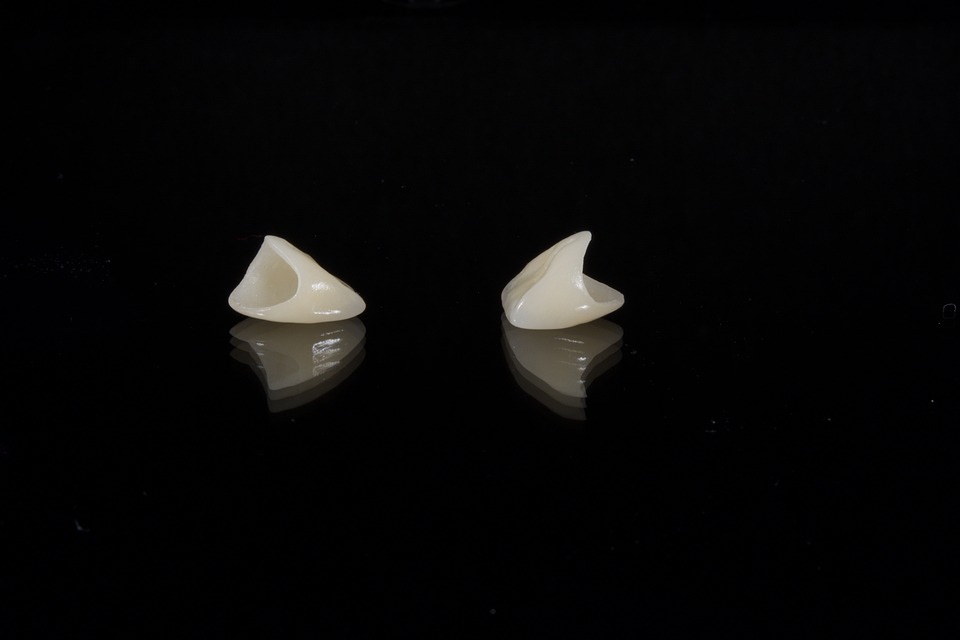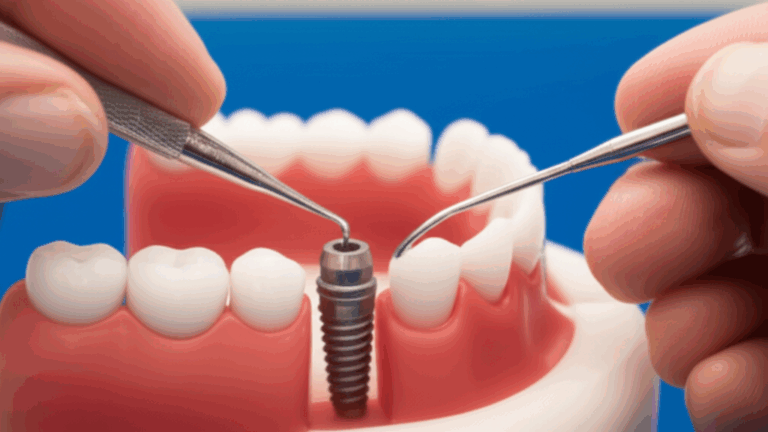
How Much Are Two Dental Implants
Ever wondered how much it really costs to get not just one, but two dental implants? If you have missing teeth, the price can feel like a hard hit. You’re not the only one—I’ve been there, looking up info, talking with dentists, and chasing down the details so you don’t have to. In this post, I’ll lay it out in plain language and give you a clear, honest answer about the cost of two dental implants—what it includes, why the price can be all over the place, and how to make a good choice for your health and your wallet.
You should keep reading because I’ll not only share real stories and simple examples, but I’m also breaking down dental talk, busting myths, and giving you an easy plan to help you take the first step—without spending too much. Don’t let confusion, worry, or sticker shock keep you from getting the dental care you need.
Article Outline
1. Why Does Everyone Ask About the Cost of Dental Implants?
2. What Actually IS a Dental Implant—and Why Get Two?
3. How Much Do Two Dental Implants REALLY Cost?
4. Why Are Prices So Different from One Office to Another?
5. What’s Included in the Cost? (Spoiler: It’s Not Just the Tooth)
6. Are There Cheaper Alternatives to Implants?
7. How Can Dental Labs (Like china dental lab or 3d dental lab) Affect Pricing?
8. Does Insurance Cover Dental Implants?
9. Are Certain Types Like zirconia lab or emax dental lab More Expensive?
10. What Steps Can You Take to Save Money—Without Cutting Corners?
11. Is Getting Two Implants Worth the Investment?
12. What’s the Real Cost If You Don’t Replace Missing Teeth?
Why Does Everyone Ask About the Cost of Dental Implants?
Let’s be real. The first thing people ask after losing a tooth isn’t about the surgery or getting better—it’s about money. I’ve seen friends, read online comments, and even heard family argue if it’s worth spending all that money for implants when dentures or bridges seem cheaper.
Dental bills can show up out of nowhere, and without someone explaining it, you can feel tricked, lost, or even too shy to ask. People want to know right away: Will two dental implants drain my savings or can I make it work?
The problem feels big because there’s so much guesswork in the dental world. You hear one person paid $3,000 total, while someone else got told $10,000! This huge price range can make you nervous, scared you’re paying too much, or worse—not getting the best deal for your hard-earned money.
What Actually IS a Dental Implant—and Why Get Two?
Think of a dental implant like a fake tooth that works and feels like your own. It’s not like dentures that you take in and out, or a bridge that needs other teeth for support. An implant is a tiny metal post, kind of like a thick, small screw. Your dentist puts it in your jawbone, lets it heal, and later puts on a crown (the part you see that looks like a tooth).
But why get two? Maybe you lost teeth in an accident, from a cavity, gum disease, or just getting older. If you have two missing teeth—next to each other or apart—it can hurt how you chew, talk, or even how you feel about yourself. Missing teeth can also make others move around over time, messing up your bite and the look of your face.
I remember when my uncle lost two molars from eating popcorn. He complained for months before doing something, but after he got both implants, he could chew again and said food finally tasted good once more.
How Much Do Two Dental Implants REALLY Cost?
This is what you want to know: In the USA, the price for two dental implants can go from $6,000 to $12,000 total, depending on where you live and what’s included. Sometimes, it’s as low as $4,000 or as high as $15,000. Sounds crazy, right?
Each implant can cost $3,000 to $6,000 once you add up the implant, surgery, the crown, x-rays, any special scans, and follow-up visits. And, that’s just the basics. If you need extra work like a bone graft or sinus lift, that raises the price. You also might pay extra if you want the best crowns—like from a zirconia lab, which are really tough, or an emax dental lab, known for looking super natural.
When you get a price, remember it doesn’t always cover everything. Double-check, ask questions, and make sure there are no hidden fees.
Why Are Prices So Different from One Office to Another?
Looking for dental implants is like shopping for a used car—you see one price online, but when you sit down to talk, it’s much more. So, what makes the price go up or down?
First, where you live matters—a dentist in a big city pays higher rent than one in a small town, so their prices often go up. Second, experience counts too. Some experts charge more because they have lots of skill and a good name—which might mean less risk and faster healing for you.
Also, some clinics have their own 3d dental lab nearby, which means they can do things faster and sometimes cheaper. Others send work to big labs far away—even overseas to a china dental lab—which might save money, but also means a longer wait or tough communication.
It’s good to remember, you’re not just paying for plastic or metal—you’re paying for skill, good tools, and peace of mind!
What’s Included in the Cost? (Spoiler: It’s Not Just the Tooth)
Most people think the price is just for a fake tooth—put it in, pay, done. Not so fast! There are sneaky extra costs that add up.
The big three are: the implant post, the abutment (the small connector part), and the crown (the top tooth). On top of that, you pay for x-rays, scans, a checkup, numbing, follow-up visits, and maybe bone work. This all adds up. Sometimes, if you need two implants, you’ll need extra scans to get your mouth just right. That sort of tech isn’t cheap, but it means less guessing and better results.
Don’t take a price that skips steps. Every part is important if you want strong, lasting implants. Ask for a written list of costs so nothing surprises you later.
Are There Cheaper Alternatives to Implants?
The truth is, implants aren’t the only way. You could pick a bridge or a removable denture when two teeth are missing. Bridges cost less at first—sometimes about half—but they need the teeth beside the gap to be shaved down to hold the bridge. That’s not always best for those healthy teeth in the long run.
Dentures? Yes, they cost less at first, but a lot of people don’t like how they feel. They can slip, make eating corn-on-the-cob tough, and sometimes make sore spots in your mouth.
Here’s the thing: Cheaper fixes can lead to bigger problems later. Implants may take more money now, but last a long time if you take care of them, while bridges and dentures often need fixing or replacing. I’ve heard plenty of people say they started with a bridge or denture and later wished for implants instead.
How Can Dental Labs (Like china dental lab or 3d dental lab) Affect Pricing?
Dental labs do a lot behind the scenes. Think of them like special kitchens where your new teeth are “made.” Local labs, like a 3d dental lab down the road, let your dentist talk to them quickly and watch every step. This can raise the price, but also means better work and quicker fixes if there’s a problem.
Some dentists use far-away places, like a china dental lab, to save money. The teeth can still be good, but it takes longer to get them and sometimes there’s a mix-up. For patients who want cheaper two dental implants and aren’t in a big rush, this might work.
No matter what, ask your dentist which lab they use and why. A good dentist should be happy to tell you about it—especially if they use great labs, like a zirconia lab for the strongest crowns.
Does Insurance Cover Dental Implants?
This part stumps most people. Sadly, most dental insurance thinks implants are a “nice extra,” not a “need.” So, even for two missing teeth, coverage is thin at best.
Still, some newer insurance plans are starting to help a little—paying for part of the crown or surgery, but almost never all of it. Normal health insurance almost never helps, unless your tooth loss came from an accident or health problem.
My advice: Check your plan, call your insurance, and ask your dentist’s finance person for help. Sometimes, they know the codes that can get you some money back. Don’t give up if the first answer is “no”—sometimes, pushing a little finds you a surprise deal.
Are Certain Types Like Zirconia Lab or Emax Dental Lab More Expensive?
Crowns come in many types. Some cost more for good reasons. Zirconia crowns, from a zirconia lab, are super strong—a good pick for back teeth that do a lot of chewing. Emax dental lab crowns, on the other hand, look almost just like real teeth, great for front teeth where appearance matters most.
Because these materials and labs need special skills and tools, you pay more. It might be a few hundred bucks extra per crown. Still, if you want the toughest or the best looking, it’s money well spent.
I know someone who picked emax crowns for her front teeth after a hockey accident. The results? No one knew which teeth were real and which were fake.
What Steps Can You Take to Save Money—Without Cutting Corners?
Sticker shock is real! But don’t worry—there are smart ways to pay less without risking your smile. First, ask around. It’s fine to get two or three prices or opinions. Tell dentists to break down the cost—what’s for the post, the crown, scans, and lab work.
Check for deals or office membership plans. Some places even let you pay little by little, without interest. If you trust your dentist, ask if using a cheaper material or lab—like a good china dental lab—will save you money and still look great.
If you don’t mind waiting, dental schools will sometimes do implants for much less, if you let students (under supervision) do the work. You might need more time, but it could save you a lot.
Is Getting Two Implants Worth the Investment?
Here’s the big question. After all this talk about prices, you have to wonder—are two implants really worth paying thousands for? From what I’ve seen and heard from people, the answer is often “yes.”
Implants let you chew well again, stop other teeth from slipping, and keep your jawbone from shrinking. They also don’t need support from other teeth like bridges do, keeping your healthy teeth safe and sound.
Most importantly, implants can last decades or even a whole lifetime with good brushing and checkups. That means you pay once, do it right, and spend less on repairs later. For your health, comfort, and confidence, it’s a smart cost that pays off again and again.
What’s the Real Cost If You Don’t Replace Missing Teeth?
Here’s something people often forget. Skipping implants or leaving teeth missing comes with hidden costs. If you leave gaps, other teeth move around. Your jawbone starts to get smaller. Chewing gets hard, and even your face might change a little. These things can cause more dental problems and cost more money later.
It can also make talking and eating awkward, and hurt your confidence when you’re with others. I know someone who hid her smile for years, but just felt like herself again after getting her implants.
So, while implants have a price tag, not doing anything might cost you even more—in comfort, health, and your self-esteem.
Summary: What to Remember About the Cost of Two Dental Implants
- Expect to pay between $6,000 and $12,000 for two dental implants in most cases—sometimes it could be a bit less or more.
- Costs change depending on where you live, the dentist’s skill, and which lab is used (local 3d dental lab or maybe a china dental lab for cheaper).
- The price covers the post, connector, crown, scans, and often extra work.
- Insurance usually doesn’t pay the full amount, but it never hurts to ask.
- Zirconia labs and emax dental labs make stronger or more natural crowns, but for a little more money.
- Bridges or dentures can cost less at first but might cause problems or need fixing later.
- The lab your dentist uses makes a difference—local or far away changes the cost, speed, and sometimes quality.
- Don’t leave gaps—costs can be higher later for your health and your wallet.
- Always get more than one price and a list that shows what you’re paying for.
- Watch for sales, payment plans, or try dental schools to save money.
- Most of the time, dental implants are worth the money for peace of mind, comfort, and a healthy mouth for years to come.
Don’t let money questions stop you—now you have the real facts to make a good, healthy choice for your smile and your future.








